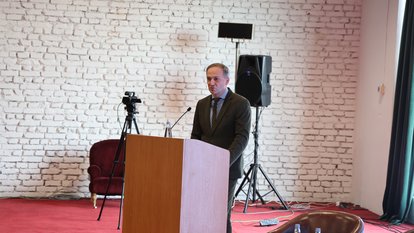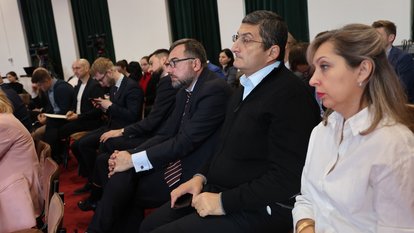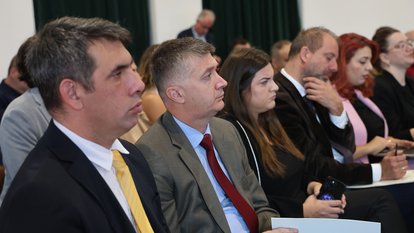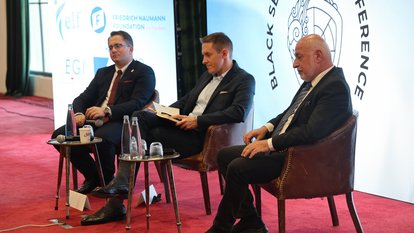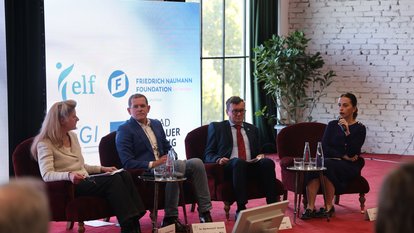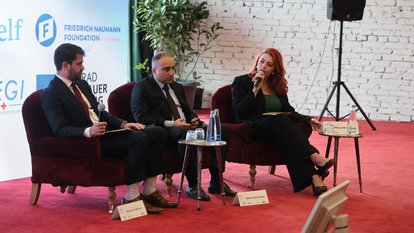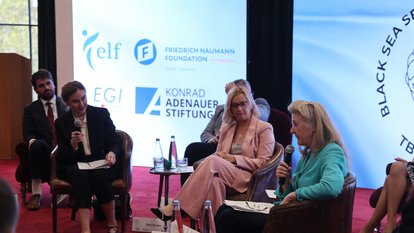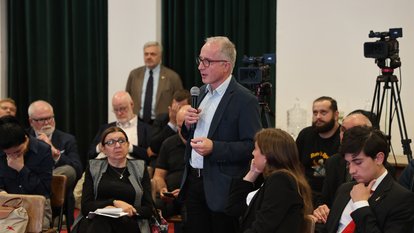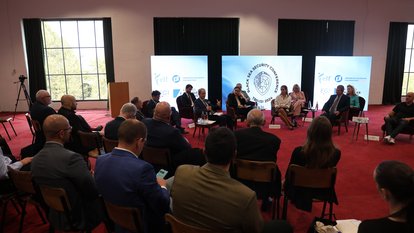Black Sea Security
Black Sea Security Conference 2024 Highlights
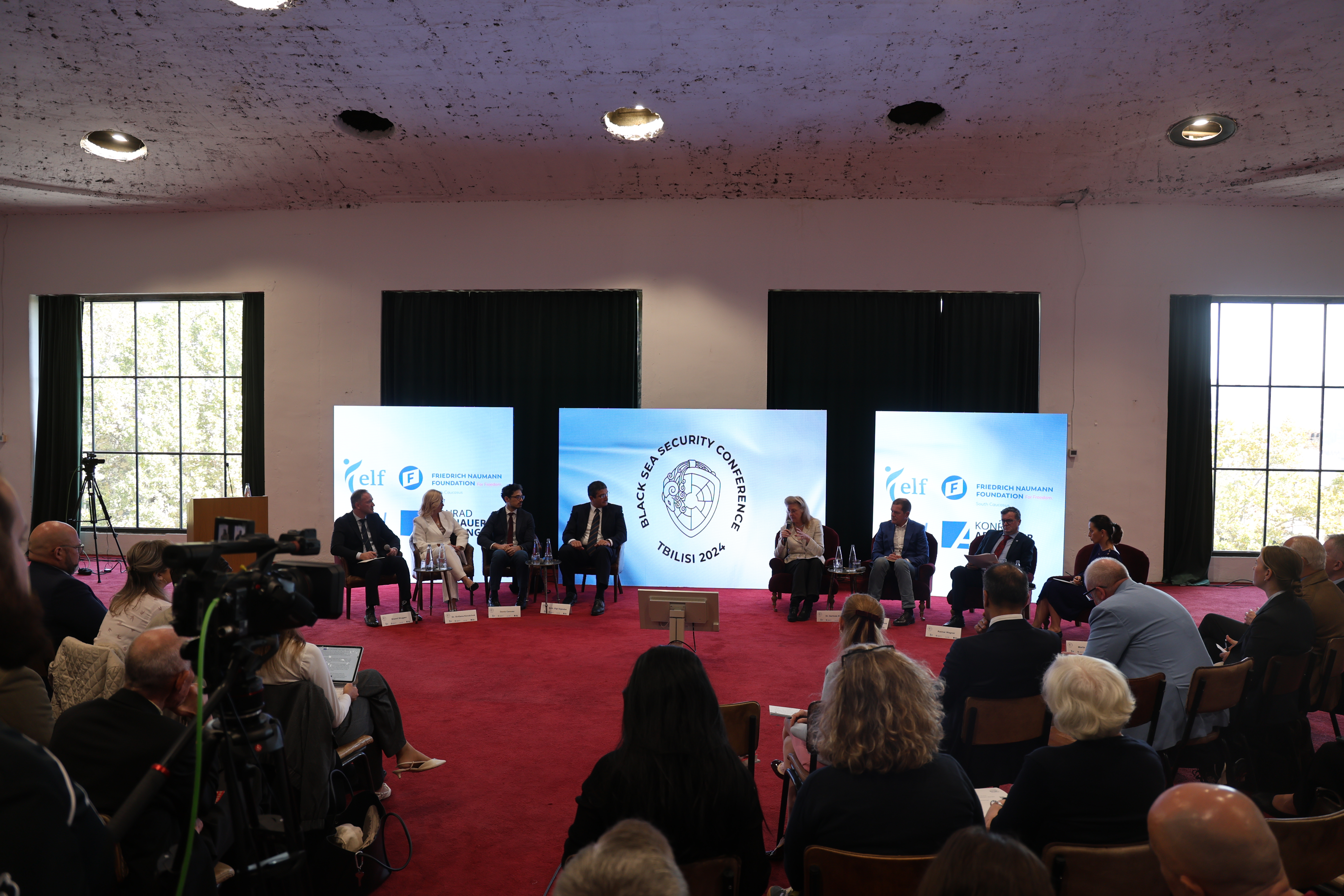
The Black Sea Security Conference was a pivotal two-day event bringing together experts, policymakers, and representatives from the EU, NATO, and Black Sea nations. The focus was on addressing geopolitical and security challenges, with a special emphasis on Russia’s aggression in Ukraine. Central to the discussions was the significance of EU and NATO enlargement as key strategies for enhancing regional security and stability.
In the opening session, speakers stressed the strategic importance of EU and NATO expansion, with Dr. Bartłomiej Nowak (Poland) highlighting Poland’s successful integration as an example of how economic security supports political and military stability. Dr. Gerlinde Niehus (NATO) emphasized that NATO enlargement had been a stabilizing force in Europe and reiterated the need for NATO's strong presence in the Black Sea region, given Russia’s destabilizing actions, particularly towards Georgia and Ukraine.
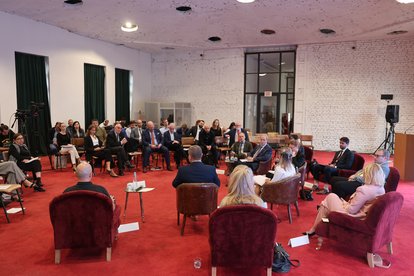
The theme of hybrid warfare was extensively discussed, with experts noting how Russia employs a combination of military operations, cyberattacks, disinformation, and economic coercion to weaken neighboring countries. John DiPirro from the International Republican Institute underscored the necessity of a coordinated response to counter these hybrid threats, while Marija Golubeva (ZINC Network) emphasized the importance of information-sharing and strategic communication to resist Russian disinformation. Ukraine's view was presented by Mykhailo Samus (Hudson Institute), who pointed to the 2008 Bucharest Summit as a missed opportunity for NATO, emboldening Russia.
Global and regional actors’ roles in Black Sea security were also explored. Dr. Kornely Kakachia (Georgia) highlighted Turkey’s delicate balancing act in its relations with Russia, while Dr. Niklas Swanström (Sweden) stressed the increasing geopolitical importance of the Black Sea, not only for regional powers but also for global actors.
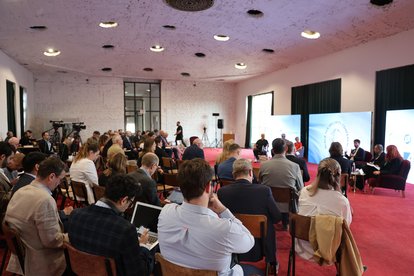
Trade and energy routes were identified as critical areas for stability, with speakers like Elchin Rashidov (Azerbaijan) and Dr. Filiz Katman (Turkey) stressing the importance of protecting key infrastructure from Russian influence. Greater cooperation on trade and energy was seen as a vital step for reducing the region's vulnerability to external pressures.
The conference closed with discussions on NATO’s critical role in ensuring long-term security in the Black Sea. Ambassador Nino Kalandadze (Georgia) and Dr. Goran Bandov (Croatia) stressed NATO’s growing focus on the region and the necessity of continued support for Ukraine. Speakers also called for increased defense spending to strengthen deterrence and practical cooperation with countries like Ukraine and Georgia. Tony Brumwell from NATO’s Military Liaison in Georgia pointed out that NATO’s focus on the Black Sea is growing, with more resources being allocated to both defense and deterrence efforts. The discussion also underscored the importance of increased NATO spending on defense, as countries like Poland and Romania ramp up their military capabilities in response to Russian aggression.
The Black Sea Security Conference provided a critical platform for discussing risks posed by Russian aggression and emphasized the importance of EU and NATO enlargement as key strategies for ensuring regional stability. The event highlighted the need for coordinated international action, economic resilience, and effective counter-hybrid warfare strategies to safeguard the Black Sea region's future security.
Gallery


